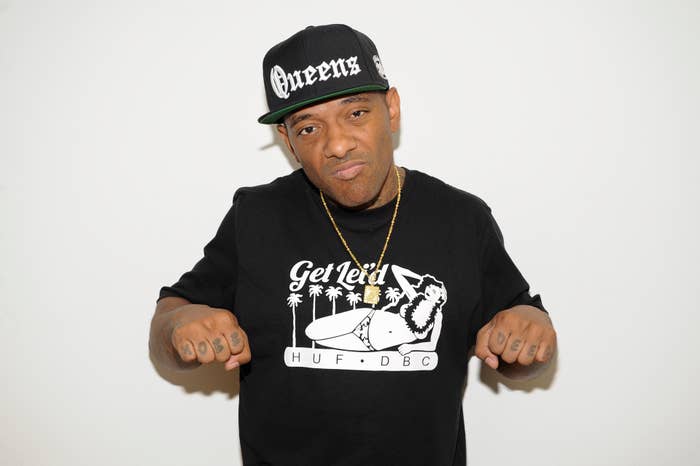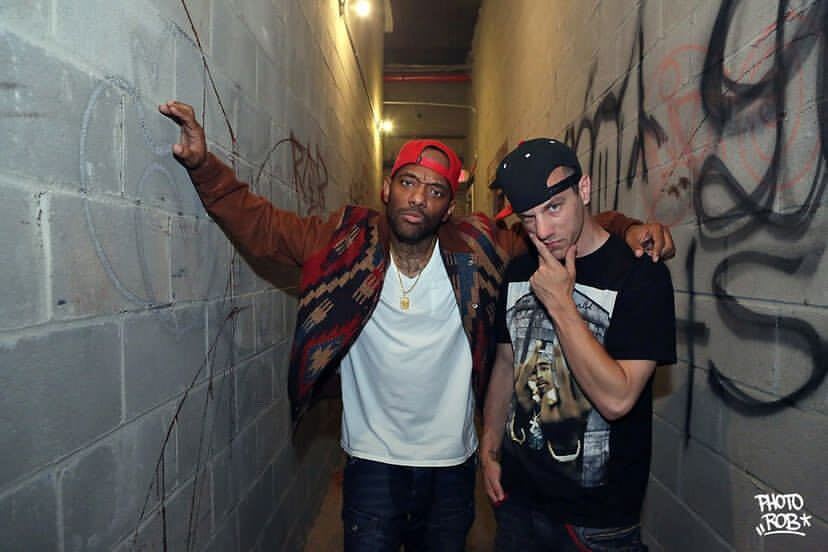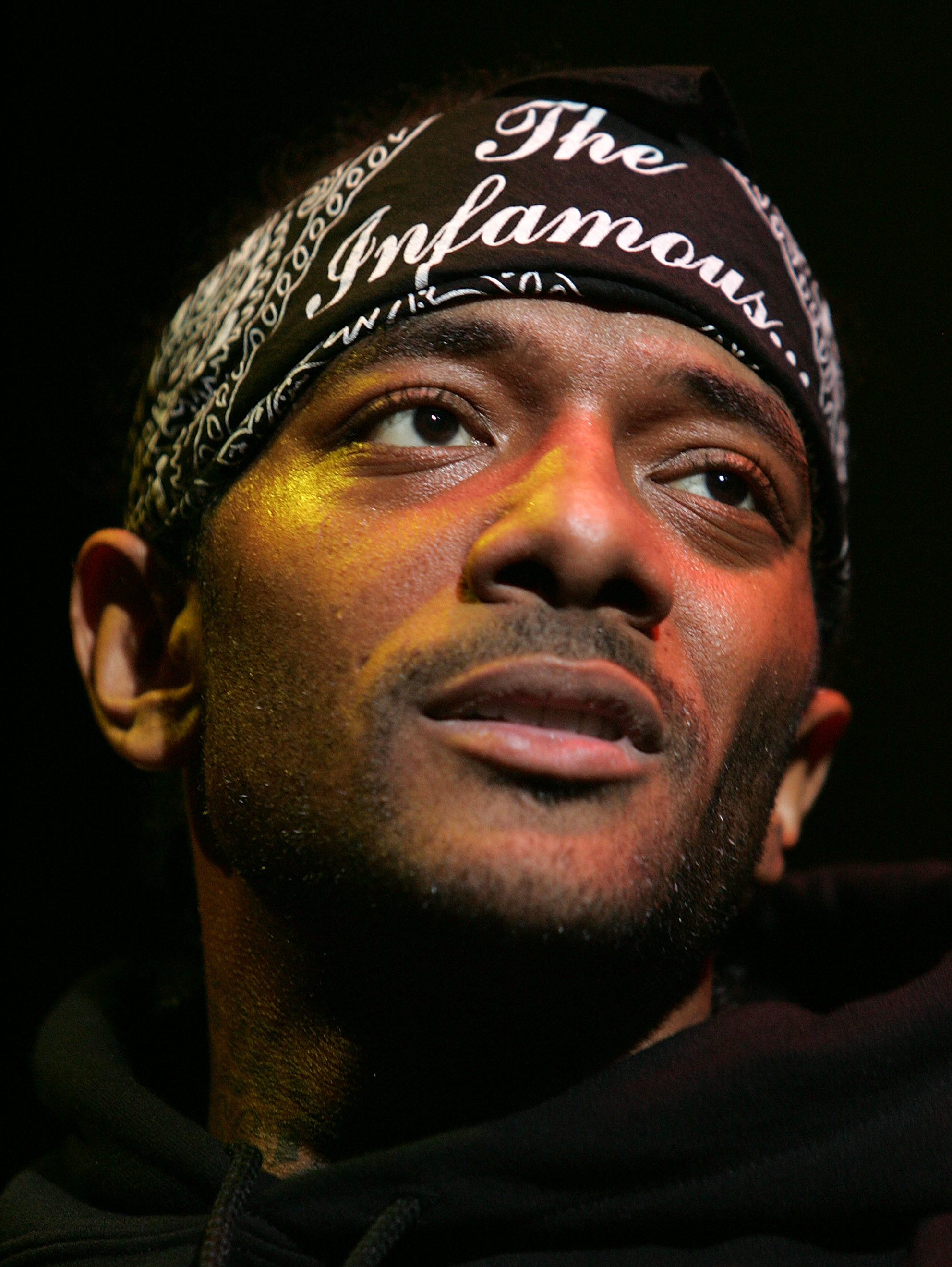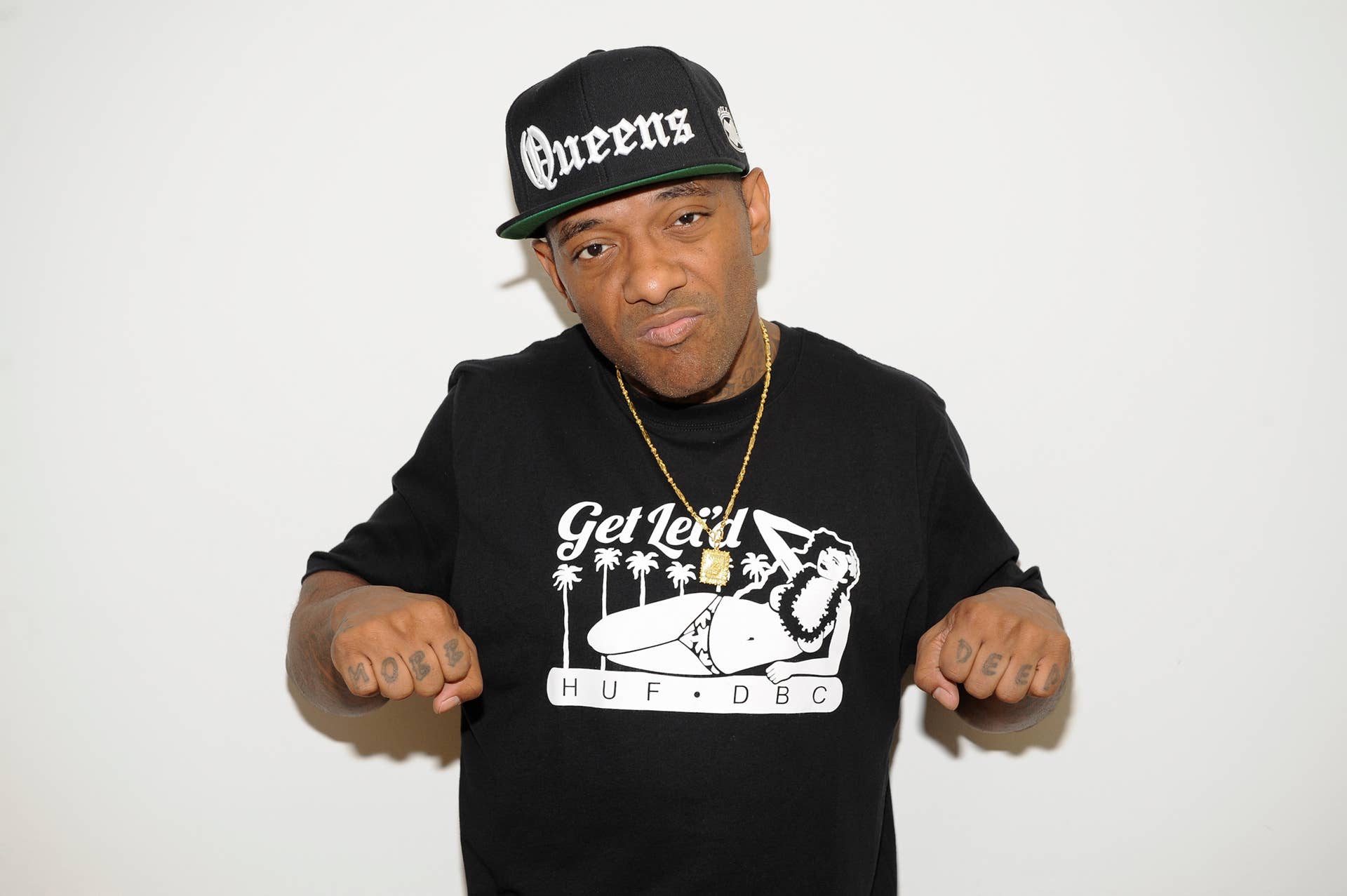
For roughly five years, Prodigy’s legendary catalog hasn’t been on streaming services, but on May 20, it finally returned to DSPs.
On that day, Prodigy’s estate released a song called “You Will See,” the first new music since the passing of the late rapper, who began his career as one half of the legendary duo Mobb Deep alongside rapper and producer Havoc. The song came with the announcements that his entire solo catalog had returned to DSPs, and that a posthumous album called Hegelian Dialectic: Book Of Heroine will be released on Infamous Records (through Warner Music) sometime in the “second quarter of 2022.” The album is part of a Hegelian Dialectic trilogy that he had already finished at the time of his June 2017 passing.
Joe the Engine Ear, Prodigy’s engineer, close friend, and roommate through the final eight years of his life, tells Complex that Prodigy’s music was taken down from DSPs in order to take proper account of his solo catalog.
“There were some legal issues once P passed with publishing rights and ownership,” he explains. “People would be like, ‘Oh, I did that. I own that.’ There was a lack of paperwork, and a lot of legal issues, so in order to not have to deal with the legal issues, all of P’s music was removed from streaming services.”
On an early July afternoon, Joe tells me about the process in his Brooklyn apartment. His walls are covered in art and photos, a sign of a well-traveled man, and his Siberian husky Judah sits beside us during our conversation. He has a home studio where he mixes for lots of New York-area artists, but today we’re talking about the one who changed his life.
In order to get Prodigy’s music back on DSPs, his friends and family culled through the paperwork and made sure the publishing splits, credits, and sample clearances were correct on every song in Prodigy’s solo catalog, as well as on the next two Hegelian Dialectic projects. “It’s hard to explain the amount of work that it took to get The Book of Heroine near the finish line,” Joe says. “I’ve never had to work this hard on anything ever, and it wasn’t just me. There was an army of people.”
Joe says he would periodically try to update fans on what was going on with Prodigy’s music without giving up too much information, because he understands their frustration. In today’s times, he realizes that “when things aren’t on streaming, you’re gone.” But at the same time, he feels like people should have been a little more considerate of what Prodigy’s family was going through.
“What people didn’t understand is this entire time we’re sitting here working on the Book of Heroine,” he explains. “And I know the fans are like, ‘You need to put out the new music. [But] the family needs to grieve because they didn’t lose Prodigy, an artist. They lost a father and a husband, a friend, things like that. All of us lost our friend, right? So this isn’t just a music thing.’”
“This is a Rock and Roll Hall of Fame-level career and legacy. It must be treated as such.”
On top of grieving his friend, Joe lost his mother just three days after Prodigy’s funeral, and he says that Prodigy’s family told him to take all the time he needed to clear his head. “I personally had to take almost a year and a half to two years until I was even mentally capable of functioning in the studio to do what we’re supposed to do,” he says. “It had to be executed properly, so a lot of the delay was on my personal timeframe. I had to take time, so then once we began working, it became, ‘Alright, let’s start the clearance sample circus.’”
The circus entailed an all-consuming process of spending every day parsing through Prodigy’s entire catalog, sometimes using an app that finds samples, then trying to run down the source. “What I ran into is that some random people own some of these samples,” Joe recalls. ‘I’ll be like, ‘Ooh, who is this? This is not even like a publishing house or anything.’ Some samples might be 74 years old from Ukraine or something, and not only is the artist long gone, but then whoever owned the rights to that legally, that organization doesn’t even exist anymore. So I’m sitting there trying to find, like, ‘How do you avoid litigation on this one when you don’t know who in the fuck owns this shit at all?’”
The relentless dive into legal minutia ended up engulfing Joe. “When I say I’ve lost friends, yes it is rhetorical and metaphorical, but it’s also my own doing,” he says. “I don’t talk to nobody. I haven’t seen my family in over two years. This is it. This is all I’m doing.” It’s a task that he admits he didn’t always know if he could complete, but he powered through on a simple mantra: “whatever it takes” for Prodigy.
Joe says the process involved a lot of “stoicism,” and it was frustrating, but he uses a football analogy to explain how he persevered. “You get into scenarios where, oh, that play didn’t work. What’re you going to do, quit? Well, no it’s third down. It might be third and 17. But you can’t get frustrated. You just have to deal with the scenario as it is now, and try to move forward, because the whole point of all of this is to win the game at the end. And the only way that we win is to build upon this legacy, especially with Hegelian Dialectic in particular, because it was planned as three.”
By the mid-2010s, Joe says that Prodigy was looking to wind down his rap career. “At the end of P’s run, the Hegelian Dialectic series were going to be the last albums. He was going to retire from making music; just tour, movies, books, other things. He never wanted to be like a mid-40s to 50-year-old rapper, It was just like, ‘It’s time to move on from there.’”
Prodigy was already creating the project that would become Book Of Heroine when Joe gave P the idea of creating a trilogy that represents the three main pillars of his catalog. As Joe explains, Book of Revelation is “Conspiracy P,” Book Of Heroine is “a drug-fueled sex-themed relationship drama” that represents the rapper’s party and romance-driven music, and Book of The Dead is the gritty, street side of Prodigy.
Hegelian Dialectic: Book of Revelations was released on January 20, 2017, the same day as former president Trump’s inauguration (which was intentional). Prodigy had announced that the other two albums, The Book Of Heroine and The Book Of The Dead, would be coming soon after that, but he passed in Las Vegas on June 20, 2017, from what a coroner deemed “accidental choking” while recuperating in the hospital from sickle cell anemia. Joe says all of the Hegelian Dialectics were finished when Prodigy passed (the last time they were together, Prodigy recorded the final song for Book Of The Dead), but Book Of Heroine had significant sample clearance issues.

“We were literally going to release ‘You Will See’ as a single [last year], and start to prepare to roll out the album,” Joe recalls. “And at the last minute there was another sample clearance issue, and it was just like, ‘We’re not doing this anymore,’ so we sat down and talked about it. I said, ‘You know what? P is what matters here, clearly.” So the team resolved that they could rework the production around Prodigy’s lyrics in order to have his music out there.
The braintrust behind Book Of Heroine consists of Joe and Prodigy’s other musical collaborators and confidantes, the legal team, and the estate, which is run by his family and has the final say on all his decisions. Joe says that some of the songs on Book Of Heroine originally included samples from the likes of Michael Jackson and Stevie Wonder. “You might as well just take a top 100 hit list in American music history and just throw 15 darts at it and say, ‘Those are the samples you used,’” he recalls. “It was that level of, ‘Oh my God! This is going to be really tough. In fact, it’s going to be impossible.”
While the tactic of reworking beats around existing vocals has resulted in some less than stellar posthumous work “from” other artists, Joe contends that everyone involved took the creative process seriously. First, they gave the producers who were on the original album the chance to remake their songs, but everyone was advised to make sure their new beats still fit the theme and mood of Prodigy’s messaging, while possessing the same bop as what Joe endearingly calls the rapper’s “awkward delivery and weird cadences.”
“I don’t talk to nobody. I haven’t seen my family in over two years. This is it. This is all I’m doing.”
“I had to explain to everybody, you can’t just make a beat,” he says. “Even once you’ve got the production in mind, you can’t just do it and quantize it. You actually have to play it around P’s vocals. The notes are going to have to hit in the spots that he leaves open, because he wrote and recorded to these [other] beats, originally. [The songs] weren’t just slammed together. It was difficult. It was interesting, time-consuming—hundreds of hours.”
Joe and his production partner Billy Lines made beats, then sent them off to the family, which he calls “the council,” for feedback. Joe says there have been instances where he redid a beat “eight, nine times” at their behest, but he didn’t mind. “Even some of the beats that I made, I would send it and then call the decision-makers and literally say, before they even hear it, it can be better,” he remembers. There were several sessions where all involved parties listened through what producers had created and made decisions on which beats were best to use. Joe says that Book Of Heroine producers also had to make sure that the project sounded fresh.
“At this point, most of the production on the [original] Book of Heroine is eight, nine, 10 years old. So if you go to remake the same feel, it’s just going to feel like it’s from 10 years ago. Now, people aren’t going to care because the music is from 10 years ago. Well then, the new goal is: Can you modernize this and not make it feel fake? It has to feel real. That’s all I kept saying, like, ‘Whatever it takes. We’ll do a million versions of each song if we have to. It does not matter. It has to feel real.’”
The end result is an album that Joe says has “the feel of a very dramatic and toxic relationship.” It adds a strong middle project to what Joe says feels like a three-episode Hegelian Dialectic series. The Book Of The Dead is already finished, and the samples cleared, so the release process won’t be as arduous as it was with Book Of Heroine.
When I ask if any Mobb Deep music is coming, Joe is coy: “I am [privy to that information]. Now, could I answer that question? Probably not at this moment. Which, if you’re an intelligent human being, two plus two always equals four. So just pay attention.”
Joe is resolute about any solo music beyond Hegelian Dialectic, however: “Well, see, that’s where the hard decisions have to be made. As I’ve always said, with me personally, if it does not build upon the legacy, it does not come out. If it is not a legacy builder, not even a continuance. This is a Rock and Roll Hall of Fame-level career and legacy. It must be treated as such. So yeah, there’s a ton of [unreleased music] but the job now becomes: You’re basically a curator and you have to take that job very seriously.”



